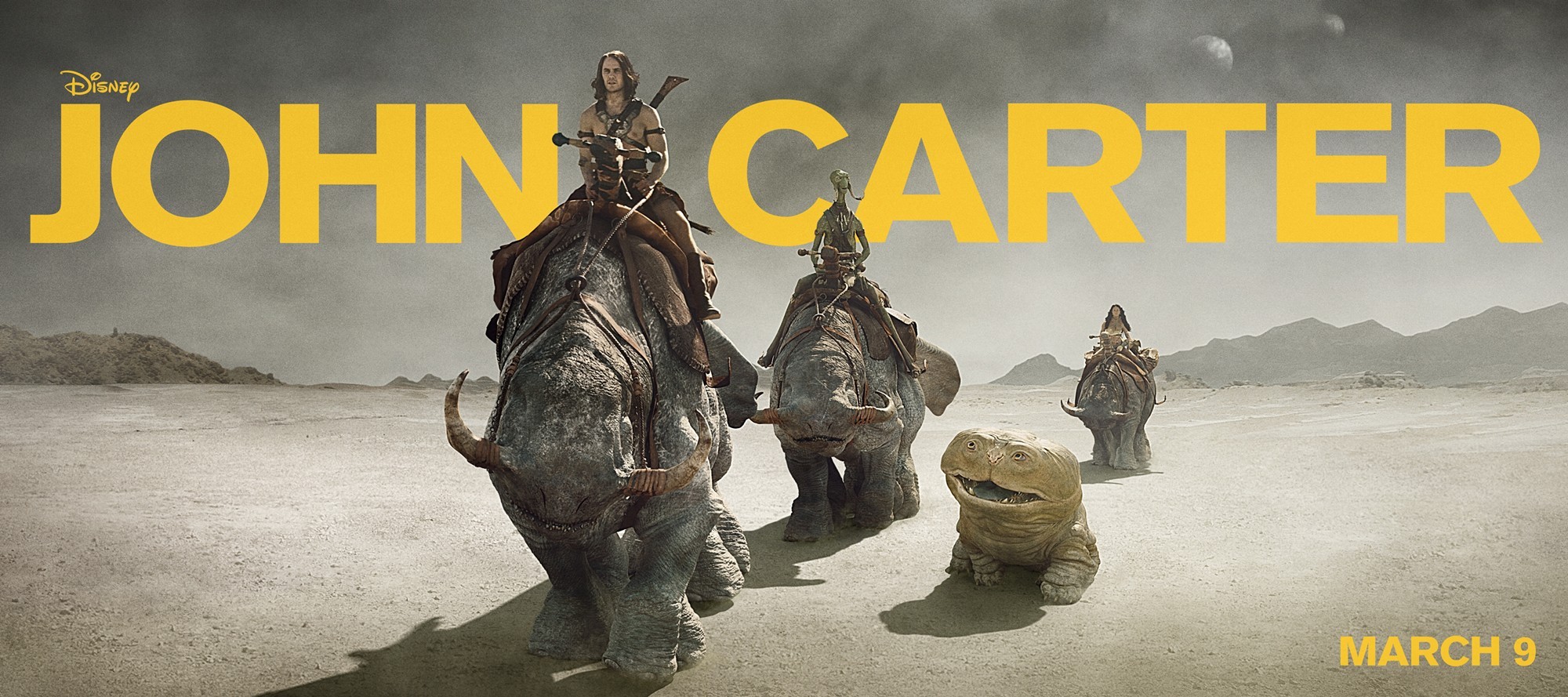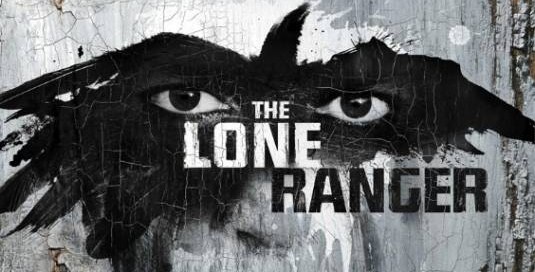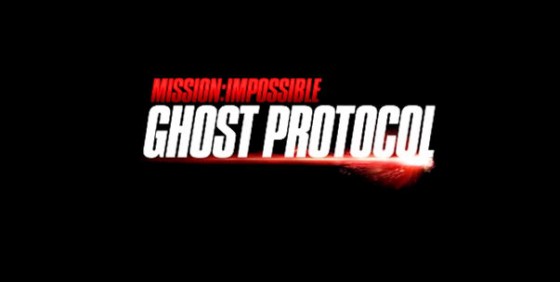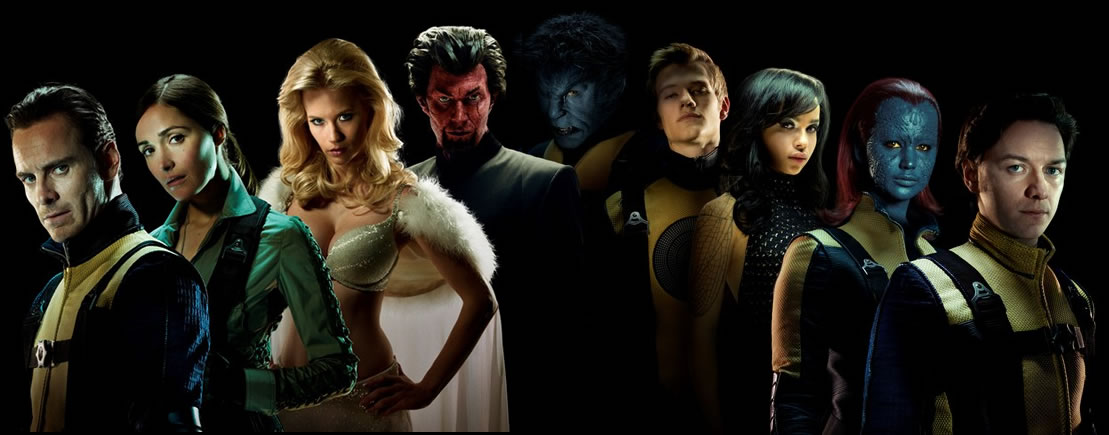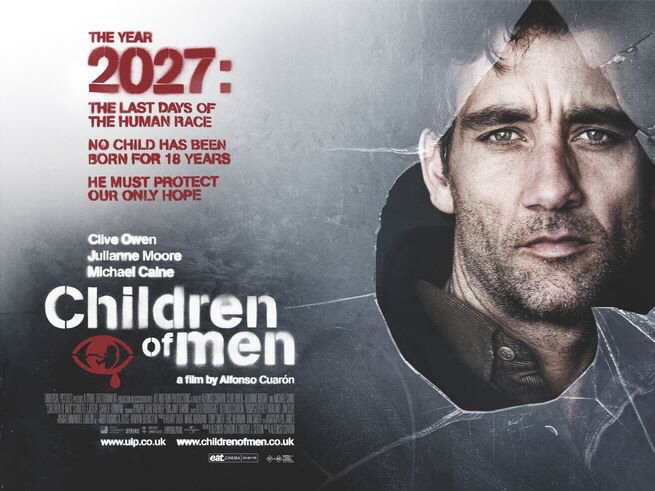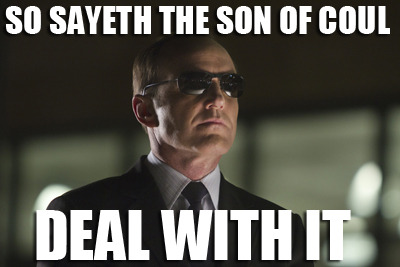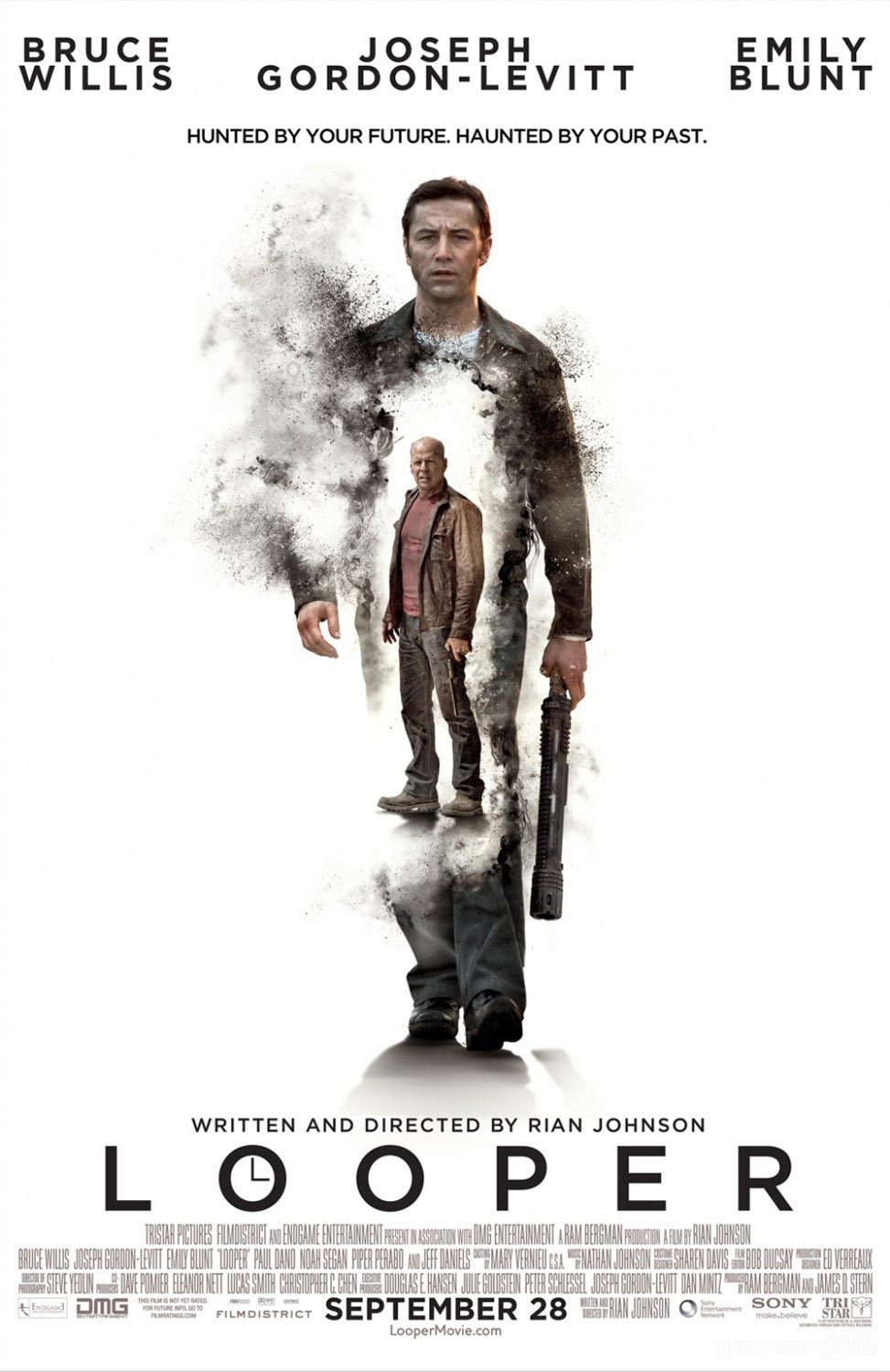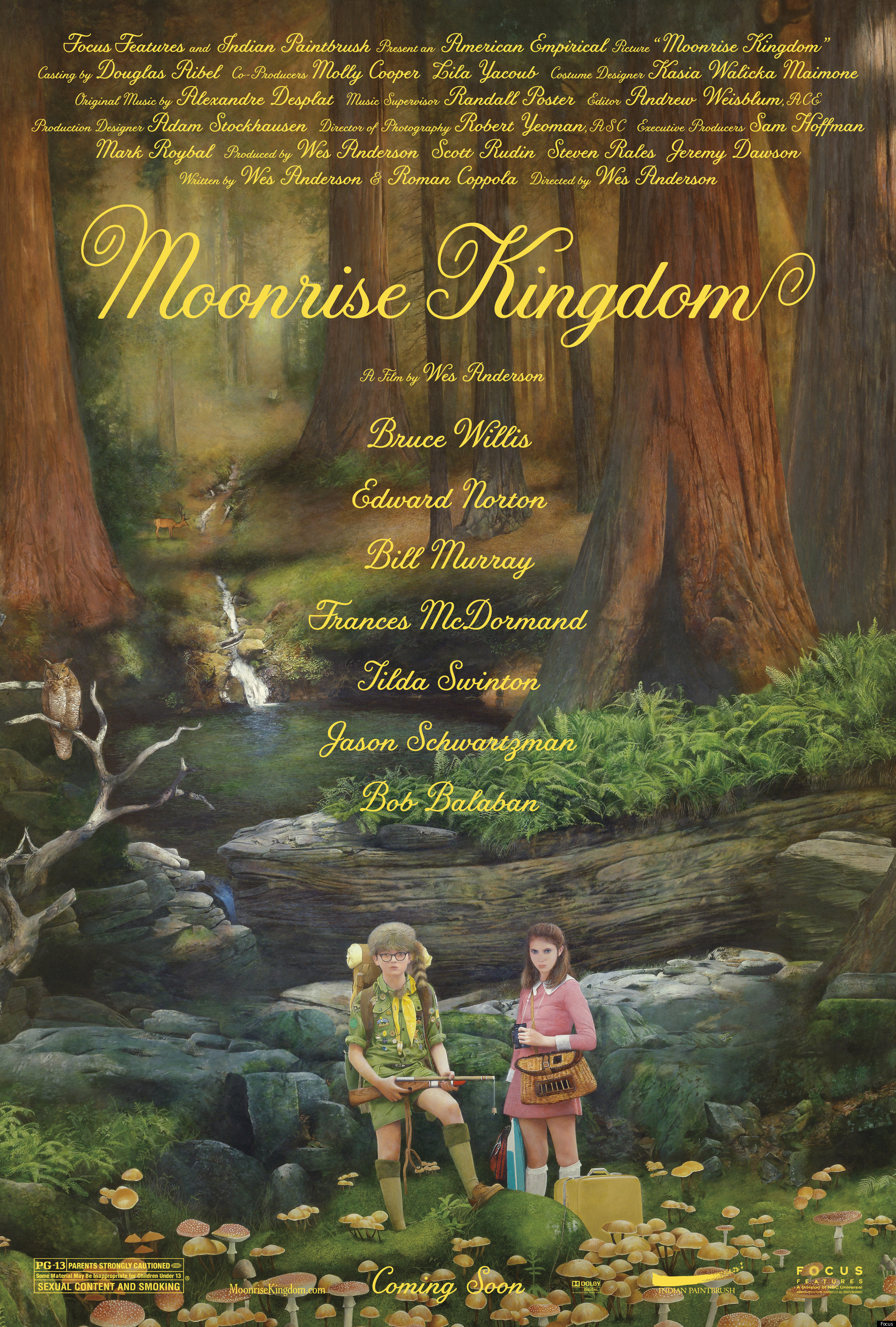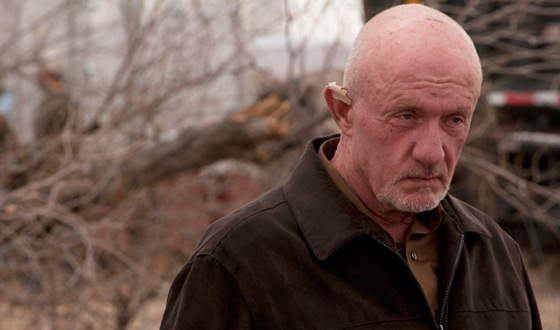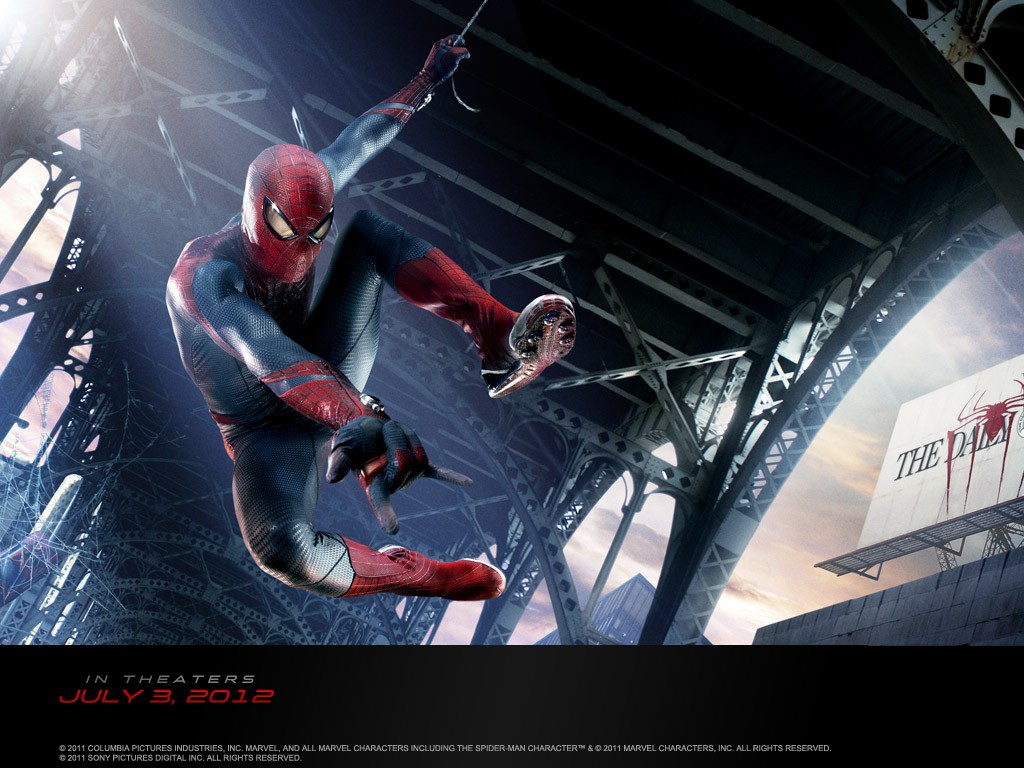 |
| THE FIRE RISES. Yes, yes it does. At long last... |
So, I'm here to type out a review for
The Dark Knight Rises. It's an epic-length action (war?) drama that tackles issues such as the overindulgence and often ridiculous opulence of the wealthy, the price they pay for wallowing in it, and what exactly would happen if the United States was overthrown by a nuclear weapon-wielding, highly intelligent, and heavily militant fascist regime, told in the microcosm of a city that somehow, in eight years, went from looking like Chicago to some sort of strange fusion of New York City, Detroit, and Pittsburgh. Incidentally, it completes the three-act Batman story Christopher Nolan was telling in his first two movies at the same time.
It's pretty safe to say that
The Dark Knight Rises is easily my most anticipated film of all time. Ever since the ball-busting, genre-tearing, and gripping piece of entertainment Nolan delivered in
The Dark Knight, I have been feverishly awaiting this one, even more so since Nolan announced that it was the final installment in what will be known in the future as "The Dark Knight Trilogy". What I was not excited about, however, was the swirling rumors of the Riddler being in the film. Riddler has long been near the very bottom on my list of Batman's rogues gallery (a lot of that blame goes to Jim Carrey, in addition to him being a fairly similar character to the Joker), so they were not encouraging. Then, Tom Hardy was cast, and eventually announced as not the Riddler, not Hugo Strange, not Hush or Black Mask, but... Bane, the man who broke the bat. The minute this came to light (along with the news of Anne Hathaway stepping into the cat shoes of Selina Kyle, a casting choice that I have never understood the criticism for), my anticipation for this film went through the roof. Compound that with the incredible trailers, jaw-dropping prologue (now-fixed Bane voice problems aside), and the promise of an ending, that by the time I was watching the trailers in the theater, I could barely contain myself. However, hopes are one thing, and reality is another, so would
The Dark Knight Rises (aptly titled, for more reasons than one) live up to the high standards that Nolan set in his first two Bat-films? (MAJOR SPOILERS AHEAD, and this will be a larger review than usual for such an event movie)
 |
| The Legend Ends. And may it never be rebooted (but it will) |
In short: Yes, but not in the way you probably were expecting.
The Dark Knight Rises is quite a great film, even one that may one day be remembered as a highlight of summer blockbusters, but many will hate it. One reason for this is because of the rather large shift in style from
The Dark Knight to
The Dark Knight Rises. It went from being a crime drama with Batman in it to a rather grandiose and fanciful war film, with comic booky technology and physics galore. Now, an alien army never touches down in Gotham, a la
The Avengers (another great comic book movie, but for totally different reasons). Nolan said that he wanted to capture the grandeur lost in films these days, and in this case, he really succeeded. It cannot be stressed enough:
The Dark Knight Rises is an epic, epic, EPIC film, structured like a sprawling novel with an armada of characters both old and new (a flaw that will be discussed later). Yet, despite its utter scale, it will have a lot of haters, even haters who loved the previous two.
Let me put this straight: If you've nitpicked to death about the way Nolan has written Batman as a character in comparison to his comic book counterpart in the past,
The Dark Knight Rises will only make you angrier. Not only does Batman get broken, he gets beaten up repeatedly, stabbed through his Kevlar, mopes, acts reckless, and even retires and becomes a weird hermit. Other supposed flaws include Bane's voice (despite being greatly improved, it still gets a little misty at times), a few odd logical lapses (how did Bruce get back into Gotham at the beginning of the third act? When did he have time to fix the Bat's autopilot?), and some shortchanged villains (the reveal at the end is good but is rendered moot approximately five minutes later, and Bane deserved a better form of defeat). I will explain all these flaws away as best I can. I'll list the supposed flaws I deem mistaken, and the flaws I think are actual.
Fake Flaw: Batman's Retirement, Seclusion, Beatings, and Breaking- Ardent and stubborn comic book fans are already crowing their heads off about this one. Batman quitting is apparently something some fans are refusing to accept, even though there's a STORY FROM THE 80s WRITTEN ABOUT IT. In
The Dark Knight Returns, the death of Jason Todd, combined with forcible retirement of superheroes by the government and a distrusting populace, led Batman into retirement for 10 years, and in
Rises, the death of Rachel Dawes, coupled with the rise of Gordon's Dent Act rooting out crime and again, a distrusting populace led Batman to hang up his cape and cowl for 8. The circumstances are so parallel that it's clear Nolan is doing his take on Frank Miller's seminal story, and it translates, pretty well. Instead of Carrie Kelly, he gets John Blake, and instead of the Joker and the government on his ass, he gets Bane, the Gotham police force, and Bane's army. He has old war wounds from his Bat-days (the leg was probably sustained by his fall off the roof at the end of
TDK and grew worse with lack of proper medical treatment), and his sharp skills have given way to a truly tragic figure, existing but not really living. And then, when Bane and Catwoman arrive, forcing him out of retirement, he's sloppy. The cops almost catch him, and he only gets away because of his wonderful toys, not because he outsmarted them. And then Bane breaks and imprisons him, in a truly shocking moment (I was surprised Nolan actually went for the backbreaker over the knee). And then, he finally is shaken out of his funk while recovering and watching Gotham in chaos while inside Bane's pit (that looks an awful lot like the well Bruce fell into as a boy in
Batman Begins. He then retrains and escapes, and when he returns to Gotham to stop Bane, he's truly Batman once again. As for his "final" retirement, with Gotham safe from Bane (and Talia) and Batman erected as a heroic symbol (not to mention a certain cop inheriting his Batcave), Bruce Wayne can exist again. It also gives a happy ending for Alfred. So, yeah, Batman retiring is being way overblown. It's being called on by purists as an inaccurate take on the character, but Nolan is still clearly drawing on comics to influence his stories. The Dark Knight fell to preserve the legacy of Harvey Dent, and he had to Rise to take on the new foe (I love how the League of Shadows pit, basically Nolan's version of the Lazarus Pit, gave Bruce an actual physical thing he needed to "rise" in).
Actual Flaws
Actual Flaw #1: Bane's Voice- After the prologue showed up at the end of last year, everyone immediately jumped on Bane's incomprehensible voice (even I admit it took me 3 tries to understand everything he was saying). I understood everything he said this time (I LOVE the actual sound of his voice, it's hilarious, charismatic, and terrifying all at the same time), but the new problem was that post-production editing made his voice really, really LOUD. His voice blared over the speakers in the theater, and while it did help on a level of theatricality, it was also distracting as hell.
Actual Flaw #2: Superfluous Characters and Plot Holes- If there's one thing I agree with the critics on this thing, it's that there's a bajillion characters, and it could have cut a lot of them and still been the same movie, only less muddled. If there's two that stand out as odd, one is Matthew Modine's Deputy Commish Foley, and the other is Juno Temple as Catwoman's comic book sidekick, Holly Robinson. Foley had a mini-arc, and a few good moments, but was vestigial. Holly was totally unnecessary, and scenes with her just bloated the movie. As for plot holes, one is Bruce getting back into Gotham after escaping the pit (which I'm forced to chock up as "he's the goddamn Batman"), and the other, more glaring one is that when Fox is examining the Bat at the end of the movie (after the Bat just blew up in a nuclear explosion). There's a second Bat? Why haven't we seen it before? Why didn't Bane steal it? When did Bruce have time to fix the autopilot? Why did he fix the autopilot on the Bat that he wasn't using? It's such a small detail, and Nolan is such a smart filmmaker, so I'll say he outsmarted himself on that one.
Actual Flaw #3: Editing, Pacing, and Length- It took awhile for me to actually begin to love this movie. I'll say it happened around the point where Bane broke Batman. Up to that, I could've gone either way on it. The pacing was fast, but it was TOO fast. They tried to cram too much into that first hour, introducing Bane, Selina, Blake, Daggett, Foley, Holly, Dr. Pavel, and Miranda, while focusing on Bruce, Alfred, Gordon, and Fox. Um, that's trying to tell the story of 12 characters in 60 minutes. That's like 5 minutes per, and when there are main ones who eat up the majority, it's way less for the lesser ones like Blake and Selina who still require development, as major pieces of the Dark Knight Trilogy puzzle introduced late in the game. As for editing, the first hour was cut too fast. There were some awkward transitions between scenes, and certain sequences felt cut short. And this also ties into my length thing. A lot of critics are saying
The Dark Knight Rises is too long; it's TOO SHORT. The movie should have been 30 minutes longer so as to properly flesh out its new characters and tie some of the more awkward disparities together. But if a 164-minute superhero movie is pushing it, then a 200-minute one is unacceptable for a summer blockbuster, movie clarity be damned. Maybe it should have been cut in two and billed as "The Epic Two-Part Conclusion to the Dark Knight Legend".
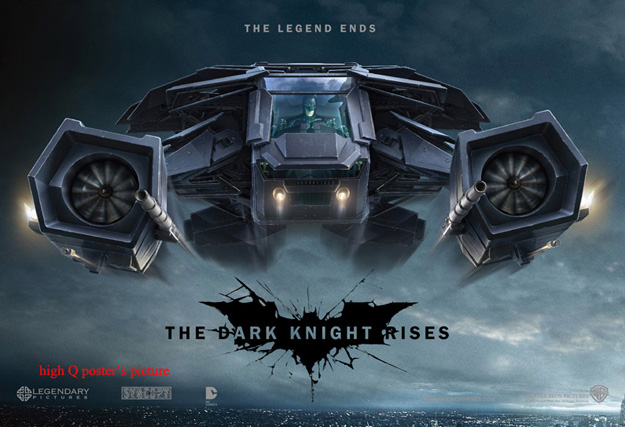 |
| It comes in black. Does it come it camo, like Bane's Tumblers? |
And that's it for flaws. Now on to the good stuff.
Team Nolan- All the credit in the world goes to Nolan and his top-notch production team. Nolan's direction is first-rate as usual, with some truly great imagery and haunting callbacks to the previous films. The moment that will stick in me indelibly in here is when Bruce is climbing the wall of the pit for the last time, the moment in the movie where The Dark Knight finally Rises, and the Hans Zimmer score is swelling, and as he hits the side of the wall, bats come out and flap around him, as they did the boy in the well, and the man in the southeast wing of Wayne Manor. I'm not a teary-eyed guy, but when that happened, I very nearly cried, realizing that this was indeed the end. The Nolan brother's script is a bit more fan-pleasing than the previous ones (and has some odd but wonderfully executed humor), but still, it ties together the continuity of the previous two nicely. Zimmer is stellar as usual (with his excellent Bane theme), Wally Pfister keeps the visual look consistent (even if he goes a little more glossy when shit hits the fan in Gotham), and the production design is stellar, with everything from Bane's costume, the setpieces, and of course, the Bat (now arguably my favorite Bat-vehicle. IT'S A FLYING TUMBLER!!) being of the highest grade.
The
Inception Cast- Nolan brings the majority of his
Inception cast with him to fill out the supporting roles (everybody but Leo DiCaprio, Ellen Page, and Ken Watanabe, who was already in
Begins show up), and since that cast was so good, it does great work here as well. Tom Hardy is just fantastic as Bane. Maybe not Oscar-worthy like the late Heath Ledger (out of respect, the Joker isn't mentioned in this story), but he portrays so much with just his facial expressions and body language that it's striking. More on Bane later. Marion Cotillard is good but lacking as Miranda Tate, but once the reveal (which we basically
all predicted over a year ago) kicks in, she becomes a great femme fatale, even if it's only for a brief while. Joseph Gordon-Levitt is very likable as John Blake, and is clearly meant to be akin to Batman from minute one. Like Batman, he's an orphan, and this personal tragedy has given him what Ra's Al Ghul in
Begins called "the will to act". He could also be seen as an example of what Batman has inspired, in a more positive way. The end reveal was a bit cheesy (enough that I can't resist typing his full name as ROBIN John Blake), but still, he's a worthy inheritor to Batman's legend. Cillian Murphy also returns in a very funny bit as Scarecrow. And of course, Michael Caine is back and better than ever as Alfred, though he's regrettably absent from a large period of the movie (which could be seen as him having no place to plausibly fit in).
Christian Bale- Bale gives his finest performance of the series here. Despite that I think
TDK is the best film of the trilogy, Bale was arguably at his worst there, though it's not entirely his fault. But here, Bale plays the broken Bruce Wayne, the rising Bruce Wayne, and Batman perfectly. They're all perfect. From the limp, to the unkempt appearance, to the graying hair, you really feel for Bruce early in the movie, and Bale portrays a truly tortured soul, even more than the self-destructive young man in the early goings of
Begins.
Anne Hathaway- Everyone questioned this casting every step of the way, and I never had any damn idea why. Hathaway does have a very youthful appearance that could've hindered her believability as a sexy cat burglar, but she does somewhat resemble the Selina Kyle of the comics, and is a well-regarded actress worthy of the role. And when she seductively whispered that threat in Bruce's ear of "the coming storm", every male in the theater was kind of weirdly turned on, guaranteed. So, yeah, she was good, and I loved that she and Bruce had a happy ending.
The Scale- I already mentioned the scale above, but DAMN THIS FUCKER IS BIG. It's huge; its climax makes the alien invasion at the end of
The Avengers look positively inconsequential, when the cops and Bane's forces go toe-to-toe, and Batman and Bane duke it out on the streets of Gotham. The Bat makes for some incredible action sequences, and a really great chase scene including Batman, Gordon, Fox, and Talia. Bane's dictatorship in Gotham makes the Joker's reign of terror in
The Dark Knight look like damn child's play by comparison, and from the opening plane sequence, to the football stadium scene, all the way to Bruce Batting the nuke away from Gotham, the sense of scale is palpable, and simply astounding. I can't believe Nolan convinced Warner Bros. to let him make this movie the way he did; I guess they agree with the "In Nolan We Trust" people too.
And now, for my last, key, and final positive, which also leads to a final minor issue:
 |
| Still thinking about that kid's lovely, lovely voice |
Bane- Seriously, I LOVE LOVE LOVE Bane in this movie. As I said, Hardy's great in the role, and his voice is legitimately genius (in both an ironic and non-ironic way I say that), but there's more to it than that. No one was ever going to replace Ledger as the Joker, and that's why Nolan stayed as far away from his camp of villainy (Warner Bros. wanted to use the Riddler, which Nolan thought would have been a bad move), and ended up going with the complete opposite. Bane is easily one of my favorite Bat-villains; His meticulous strategic planning, brute destructive power, and of course, his breaking of the bat lets me overlook the strange S&M luchador gear he wears in the comics. Joel Schumacher abused and pissed all over the character in
Batman and Robin, and then
Arkham Asylum (the video game, not the movie), turned in a version disturbingly close to the skinny hopped up guy from Schumacher's film (though his cameo in an
Arkham City subplot did make some amends towards this). All I wanted was a more faithful (to the personality, not the design) and fair adaptation of the character than we'd seen in other media before. But Nolan up and completely transformed the character, actually making him superior to the comic version (at least, until near the end). I love this Bane so much for two reasons:
1. Depth. On a superficial level, Bane seems like evil incarnate. He kills indiscriminately and without mercy, executing his own henchmen, the CIA agents, Dr. Pavel, and Daggett (the guy who'd HIRED him). He refers to himself in glorified statements like "Gotham's reckoning" and "a necessary evil". He blows up a football stadium in front of innocent people, executes the rich and police mercilessly (by death, exile, or DEATH BY EXILE, one of my favorite moments in the whole film), and plans to blow them all up after they've suffered, breaking Gotham in both body and soul. And yet, when he hears the kid sing the Anthem, he goes "what a lovely, lovely voice" (which, in Bane's tones, in the funniest line ever committed to film), and holds a protective love for Talia, showing that he can still care and see beauty, even while acting like a revolutionary sociopathic terrorist.
2. Presence. While I have noted that Bane is fleshed out, and can also be quite funny, the full reality of the character is that he's COMPLETELY AND UTTERLY TERRIFYING. The Joker was completely and utterly terrifying as well, but in the opposite way. The Joker had presence through the reverberations of his actions, and the fact that he was always one step ahead of damn near everyone else. His mystique also added to the fear; we never really found out who he was or where he came from, so we had no idea how he was shaped into the madman he became. Therefore, we had absolutely no idea what he was actually thinking at any given moment, sans the scene where Batman interrogates him. Bane was born in the darkness of the pit ("Born and raised in Hell on Earth", as Alfred put it), became incapacitated by injuries and became dependent on his mask. Ra's threw him out of the League for being too radical; as in, the guy who wanted to FEAR-GAS AN ENTIRE CITY thought he was too radical. His physicality must be seen to be believed; he's a damn force of nature. But going back to the Joker comparison, I think it boils down to one thing: The Joker was scary because you never knew what he was going to do. Bane is scary because you know EXACTLY what he's going to do, and it's the most evil plan ever concocted by a sane man ever. Ledger can't be topped, but Bane comes damn close by doing the opposite.
The one possible mistake with Bane is that he's serving Talia. This could be seen as a slight to his character; were they mutual partners, or was he merely her protector and enforcer? I'd like to think it was a partnership, as it takes away all of the "reckoning" that he was talking about. Also, if Selina killed him with her Batpod guns, that's an unfair death to the character.
 |
| Catwoman likes guns. Guns on A Batpod is still weird. |
So, with all that said, the inevitable question comes: is Rises better than The Dark Knight? Well, no. But how could it be? The Dark Knight had a singularly unified core, it never wasted a single scene, and it had a virtuosic performer in Ledger. Rises, while still an excellent movie, lacks these things. There are a few wasted scenes here, some disparities that never really come together, and while I already stated my love for Bane, Ledger is sorely missed. I would argue that it's a good deal above Batman Begins, though, which had an excellent first hour and a half but was marred by a troublesome third act. This has a similar issue, in that its first hour has minor issues (though not nearly as flawed as the third act of Begins), before its second and third acts deliver thrills, chills, and plenty of emotion. The ending was the perfect capper to Nolan's trilogy, with Bruce and Selina getting happy endings, Alfred being content, Gordon and Fox being Gordon and Fox, and finally, ROBIN John Blake inheriting the Batcave. When Alfred sitting in that restaurant, me thinking Bruce is dead, and the same wonderful closing Zimmer theme that played at the end of The Dark Knight is trumpeting, when the signature Batman music starts to drum up as Alfred looks up, I felt one of the last doors to my youth closing forever. As the elevator in the Batcave begins to ascend and the black begins to fill the screen, the full impact hit me: it's over. And Nolan delivered.
The Dark Knight Rises gets a 9.75 out of 10. (I can't in good conscience take any more off for the minor issues).
Also, I don't want to see another Batman movie for 30 years. I will probably not get this wish.
 |
| This cheap photoshop job of a poster was the worst thing about the movie. |

